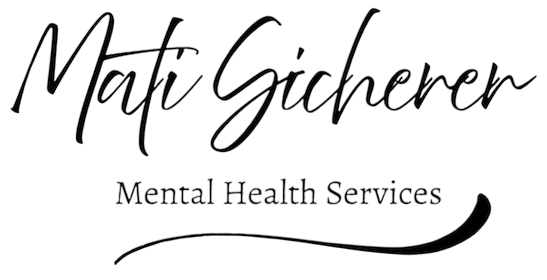Individual Therapy for ADHD: Why Traditional Approaches Sometimes Hurt More Than They Help
Living with ADHD often means moving through a world that wasn’t designed with your brain in mind. That’s true in school, at work, in relationships—and, unfortunately, sometimes even in therapy. While therapy can be deeply healing, not every approach acknowledges the unique ways ADHD shows up in daily life. For some people, “standard” therapy models can unintentionally make things worse, leaving them feeling misunderstood, judged, or even like they’ve failed at therapy itself.
When Traditional Therapy Misses the Mark
Many therapy approaches assume that clients can remember to complete homework assignments, keep track of skills they’re practicing, or manage emotions in a relatively consistent way between sessions. But for people with ADHD, that isn’t always realistic. Forgetting to do an assignment, struggling to use a coping skill when dysregulated, or being thrown off course by a stressful trigger isn’t a lack of motivation—it’s part of how ADHD affects executive functioning and emotional regulation.
When a therapist doesn’t take these realities into account, a client may start to internalize the idea that they’re “not trying hard enough.” Instead of therapy feeling supportive, it can feel like yet another place where ADHD symptoms are framed as personal failings.
Dysregulation, Trauma, and Escalated Responses
Many people with ADHD also live with high sensitivity to stress, emotional dysregulation, or a history of trauma. In moments of overwhelm, responses can escalate quickly—not because someone wants to overreact, but because their nervous system is wired for faster, more intense reactions.
If a therapist interprets this escalation as “non-compliance,” “manipulation,” or “lack of effort,” the client may feel shamed instead of supported. Over time, therapy becomes a space where they feel punished for something that is neurological and trauma-informed, rather than understood for what it truly is.
The Role of Rejection Sensitive Dysphoria (RSD)
Rejection Sensitive Dysphoria (RSD)—the intense emotional pain linked to real or perceived rejection—is another ADHD experience that many traditional therapy models overlook. A client with RSD may interpret even neutral feedback as criticism or abandonment. In therapy, this can make it hard to tolerate gentle challenges or discussions about progress. Without awareness of RSD, a therapist might unintentionally reinforce the client’s feelings of rejection.
This cycle can leave clients feeling unsafe in therapy, despite their efforts to engage. They might even drop out, convinced they “can’t be helped,” when in reality, what they needed was an approach tailored to ADHD.
How ADHD-Affirming Therapy Makes the Difference
ADHD-informed therapy works differently because it starts from a place of understanding. Instead of seeing missed homework or escalated reactions as resistance, a neurodivergence-affirming therapist recognizes these as symptoms of ADHD—and adapts accordingly.
That might mean:
Shifting expectations around therapeutic homework—focusing on in-session practice, reminders, or small, manageable steps.
Building regulation tools that account for how quickly emotions can escalate, so clients can pause before reaching their breaking point.
Naming and normalizing RSD, so clients can understand why they feel rejection so intensely, and practicing ways to ground themselves before reacting.
Integrating trauma-informed care, recognizing how past experiences shape present responses and ensuring therapy feels safe rather than shaming.
Instead of therapy becoming another space where ADHD feels like a barrier, it becomes a place where ADHD is fully understood. That shift helps clients feel less like they are “failing” therapy and more like therapy is finally working for them.
Therapy as a Place for Healing—Not Another Source of Shame
If you’ve ever felt like individual therapy just didn’t work for you, it may not be because you weren’t trying. It may be because the therapy wasn’t designed with ADHD in mind. An affirming, ADHD-informed approach creates room for flexibility, compassion, and strategies that fit your brain.
Therapy should never be another place where you feel like you’re falling short. Instead, it can become a space where you understand yourself more fully, practice new ways of navigating challenges, and learn how to live with ADHD without shame.
Because the truth is this: you’re not failing therapy. The therapy just needs to meet you where you are.
Looking for Individaual Therapy in Fair Lawn, NJ?
At Mati Sicherer Mental Health Services, I offer trauma-informed, neurodiversity-affirming therapy for adults navigating Neurodiversity and related challenges.
Reach out today to schedule a free consultation and begin Neurodivergent Affirming Therapy that honors your experience.

